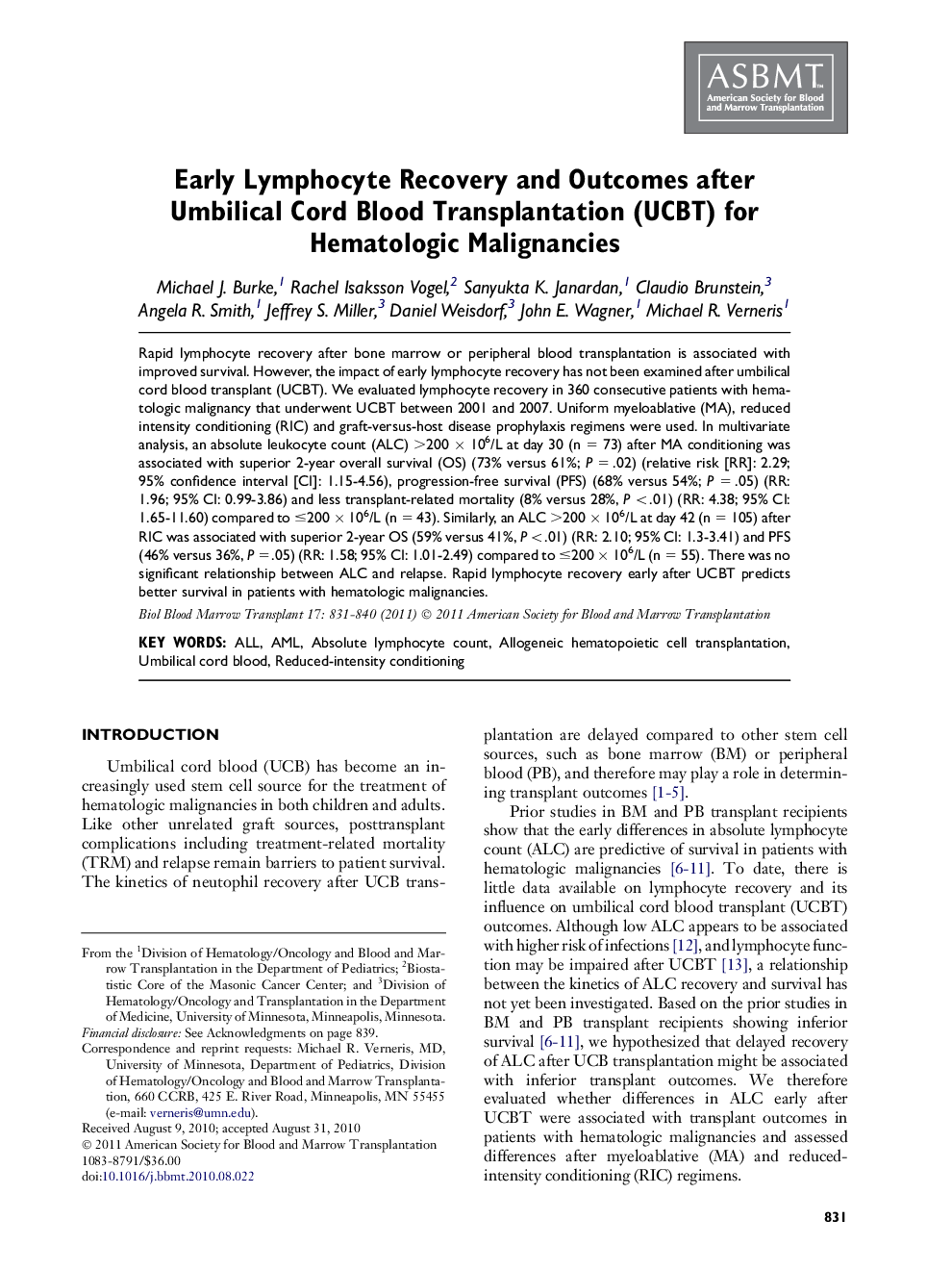| Article ID | Journal | Published Year | Pages | File Type |
|---|---|---|---|---|
| 2103156 | Biology of Blood and Marrow Transplantation | 2011 | 10 Pages |
Rapid lymphocyte recovery after bone marrow or peripheral blood transplantation is associated with improved survival. However, the impact of early lymphocyte recovery has not been examined after umbilical cord blood transplant (UCBT). We evaluated lymphocyte recovery in 360 consecutive patients with hematologic malignancy that underwent UCBT between 2001 and 2007. Uniform myeloablative (MA), reduced intensity conditioning (RIC) and graft-versus-host disease prophylaxis regimens were used. In multivariate analysis, an absolute leukocyte count (ALC) >200 × 106/L at day 30 (n = 73) after MA conditioning was associated with superior 2-year overall survival (OS) (73% versus 61%; P = .02) (relative risk [RR]: 2.29; 95% confidence interval [CI]: 1.15-4.56), progression-free survival (PFS) (68% versus 54%; P = .05) (RR: 1.96; 95% CI: 0.99-3.86) and less transplant-related mortality (8% versus 28%, P < .01) (RR: 4.38; 95% CI: 1.65-11.60) compared to ≤200 × 106/L (n = 43). Similarly, an ALC >200 × 106/L at day 42 (n = 105) after RIC was associated with superior 2-year OS (59% versus 41%, P < .01) (RR: 2.10; 95% CI: 1.3-3.41) and PFS (46% versus 36%, P = .05) (RR: 1.58; 95% CI: 1.01-2.49) compared to ≤200 × 106/L (n = 55). There was no significant relationship between ALC and relapse. Rapid lymphocyte recovery early after UCBT predicts better survival in patients with hematologic malignancies.
